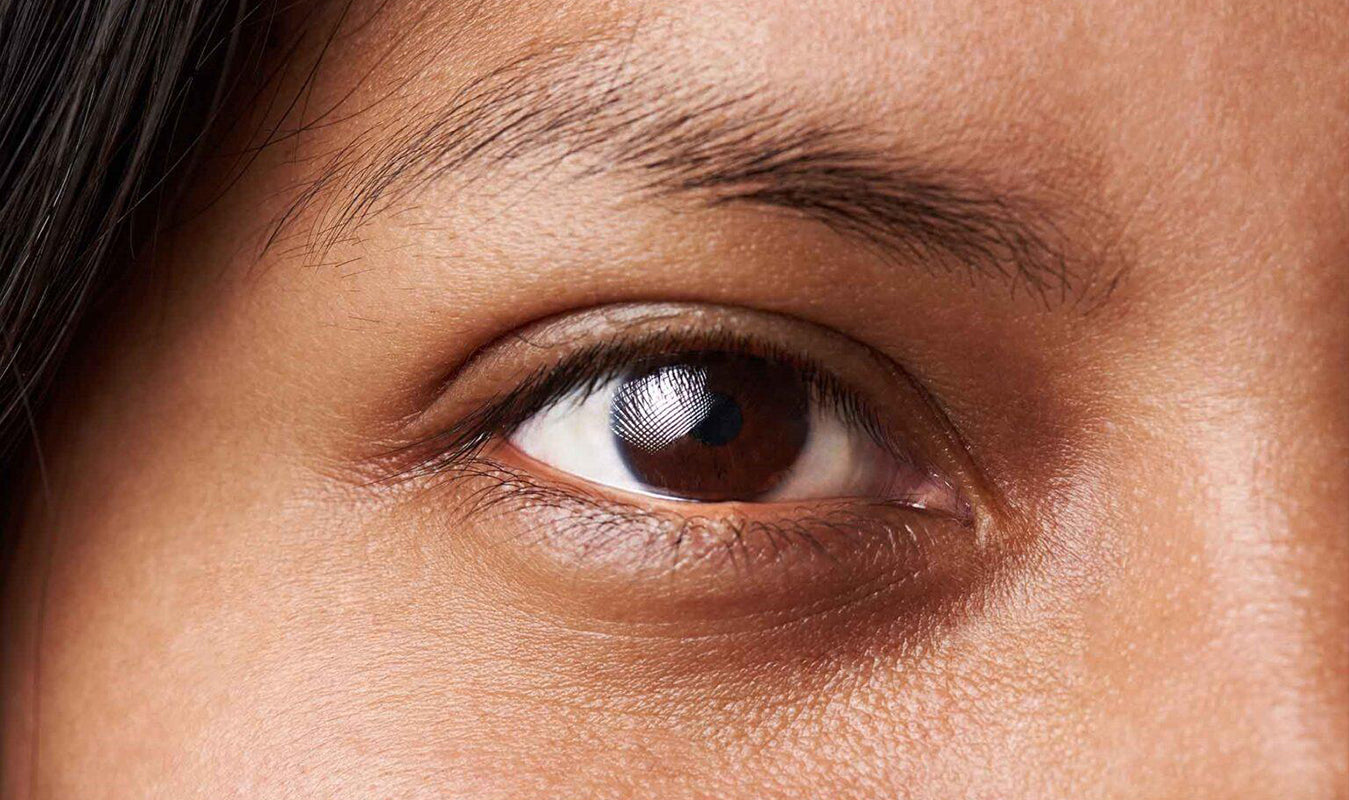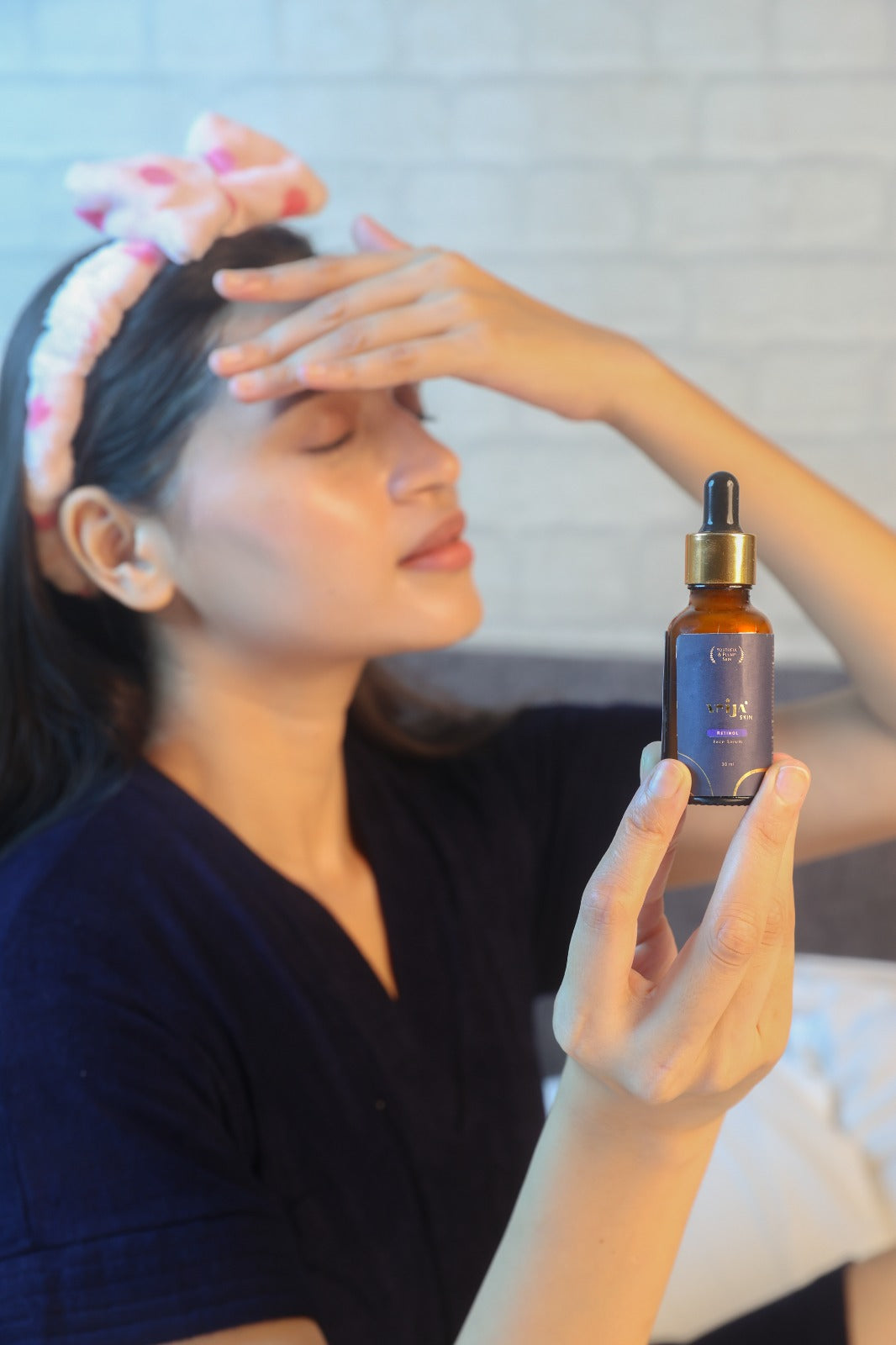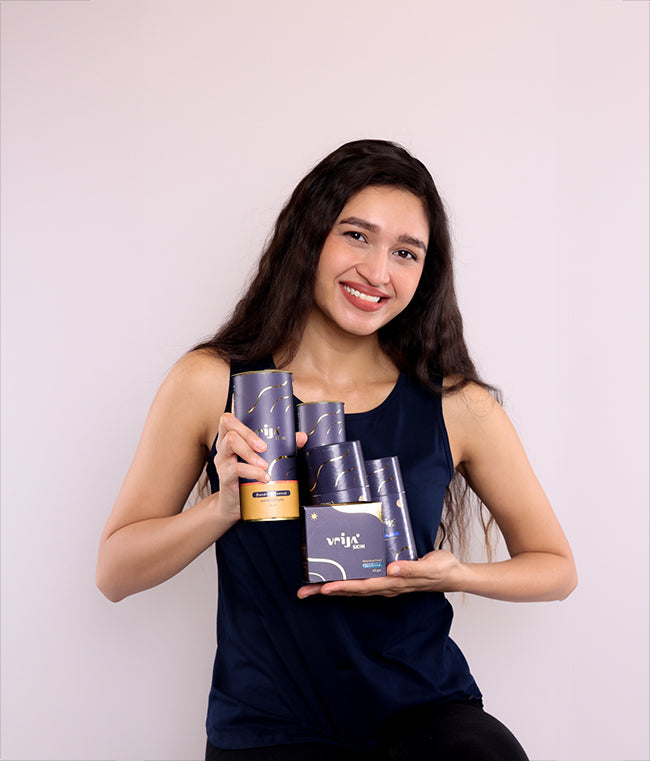
How to reduce dark circles?
Out of all the skin concerns that revolve around ageing skin, dark circles might be the ones that are dreaded the most. And why should they not be? They make us look fatigued, sleepy, and commonly more geriatric than our age. Many people feel (and have been fibbed to, by the media), that dark circles cannot be reversed. It is only partially true, for the most. However, before we dive deep into the discussion of how you should tackle dark circles, you should know what causes dark circles.
How are dark circles around the eye formed?
Dark circles are hyper pigmented patches of skin either underneath or all around the eyes that develop due to a plethora of causes, some of which include-
As a consequence of ageing
As you age, the amount of collagen, elastin, and fat drops, not only underneath your eyes but also all over your body. These are the three main things (along with hydration, of course) that keep your skin plump. When there is lesser collagen, elastin, and fat in your skin, under eyes might look sunken in. This can give rise to darker looking skin under the eyes.
Hormonal imbalances, especially in women
Estrogen deficiency, which occurs in post-menopausal women, is a leading cause of under-eye wrinkles and dark circles. Other hormonal changes that occur during pregnancy and the menstrual cycle also result in dark circles.
Generally finer and more translucent skin can also lead to the appearance of dark circles, as the blood vessels beneath the skin under your eyes are visible with ease
Stress
Cortisol, also known as the stress hormone, is produced in excessive amounts when your body is under any kind of stress. With an increase in the amount of cortisol in the body, blood production increases thereafter. As the vessels in your body can only hold so much blood, they begin to dilate and become more noticeable, giving the skin under your eyes a bluer tint, and thus accentuating the appearance of dark circles.
Insomnia
Similar to the mechanism of increased cortisol leading to the appearance of dark circles underneath your eyes, chronic insomnia or prolonged sleep deprivation can also lead to the appearance of dark circles.
Genetics
Now that we know the basic causes of dark circles, let’s take a look at how you should deal with them
Stay away from the sun
Use good quality sunglasses and other protective equipment like hats as UV rays can cause DNA damage and further pigmentation.
Get enough rest
This includes de-stressing activities like yoga, meditation, or anything that gets your mind off anything that might be bugging you. Losing sleep and being overtired can not only hamper the way you look but also hinder the way you function daily.
Give caffeine a try
This might be in the form of green tea bags (keep cool damp green tea bags under your eyes) or coffee-ice cubes as caffeine is a vasoconstrictor and can potentially “shrink” the dilated blood vessels. It can also neutralize free radicals, thus slowing down the ageing process.
Moisturize and hydrate your skin
Drink supplements with collagen and use humectants as simple as glycerine under your eyes. You can use soothing ingredients like oat extracts or ceramides to strengthen your skin’s barrier.
Use actives
Actives like niacinamide stimulate collagen and ceramide production thus plumping up the skin underneath your eyes. Vitamin a or retinoids, when used with caution, increase the production of collagen and promote cellular regeneration. The star ingredient of the day, aka Vitamin C, brightens the skin as it is a very mighty antioxidant, and promotes the synthesis of collagen too. Other brightening ingredients like alpha arbutin and kojic acid can also help.




